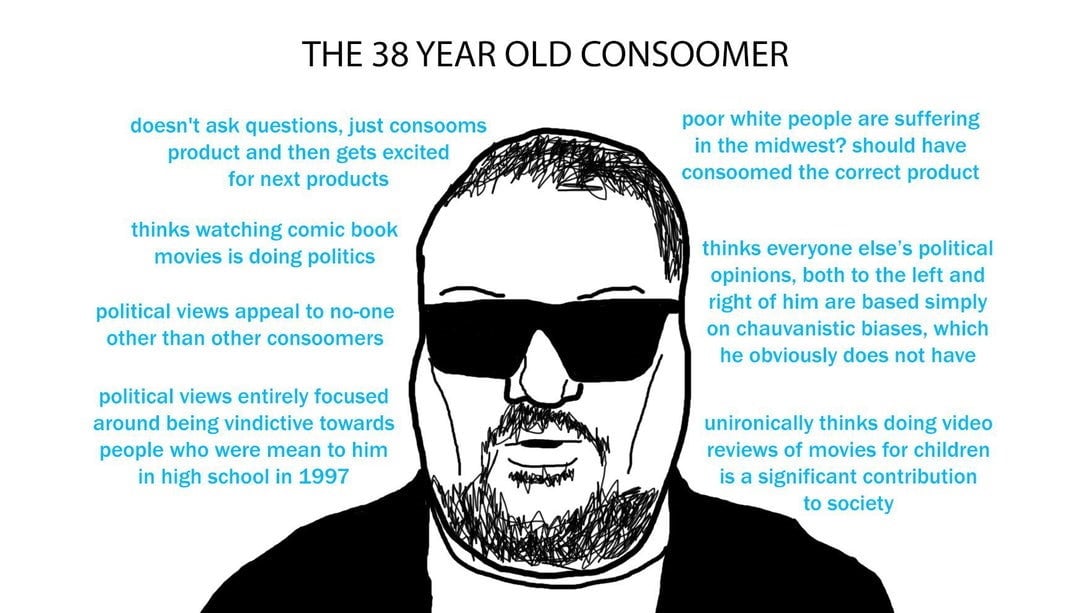This episode of Security Now covered Google’s plan to deprecate third party cookies and the reaction from advertising organizations and websites.
The articles and the opinions of the show hosts are that it may have negative or unintended consequences as rather than relying on Google’s proposed ad selection scheme being run on the client side (hiding information from the advertiser), instead they are demanding first party information from the sites regarding their user’s identification.
The article predicts that rather than privacy increasing, a majority of websites may demand user registration so they can collect personal details and force user consent to provide that data to advertisers.
What’s your opinion of website advertising, privacy, and data collection?
- Would you refuse to visit websites that force registration even if the account is free?
- What’s all the fuss about, you don’t care?
- Is advertising a necessary evil in fair trade for content?
- Would this limit your visiting of websites to only a narrow few you are willing to trade personal details for?
- Is this a bad thing for the internet experience as whole, or just another progression of technology?
- Is this no different from using any other technology platform that’s free (If it’s free, you’re the product)?
- Should website owners just accept a lower revenue model and adapt their business, rather than seeking higher / unfair revenues from privacy invasive practices of the past?
Would you refuse to visit websites that force registration even if the account is free?
Yes, I already do. I don’t visit Instagram because you need to login to view posts.
What’s all the fuss about, you don’t care?
I definitely care.
Is advertising a necessary evil in fair trade for content?
Ah, now this is an interesting question. I can certainly see an argument that ads are necessary to support “free” content, although personally in many cases I prefer to pay a subscription to support content rather than being subjected to ads.
Really though this is kind of a red herring because it’s predisposing that violating your privacy and collecting personal information is a prerequisite to serving ads. It’s required for individually targeted ads, yes, but they don’t need to traget ads to the individual, they could target the ad by site or the contents of the page hosting the ad.
Would this limit your visiting of websites to only a narrow few you are willing to trade personal details for?
I would not visit any site that sold my details to an advertiser.
Is this a bad thing for the internet experience as whole, or just another progression of technology?
Yes, this is very bad.
Is this no different from using any other technology platform that’s free (If it’s free, you’re the product)?
There’s a reason I don’t use most “social media” sites.
Should website owners just accept a lower revenue model and adapt their business, rather than seeking higher / unfair revenues from a privacy invasive practices of the past?
Yes, or find a different revenue model that doesn’t invade people’s privacy.
Ah, now this is an interesting question. I can certainly see an argument that ads are necessary to support “free” content
I understand the need for ads, but having lived through popups, bonzi buddy, and “punch the monkey”, advertisers blew any chance of me not using an ad-blocker.
Ads don’t bother me as much as their invasiveness. I block ads because…
- if a business is dirty enough to resort to interference with popups to get attention, I’m not spending money there. Period.
- I don’t want to support mass surveillance perpetrated by the industry.
Give me simple tech ads on tech sites, grocery ads on store fronts, travel ads on travel articles, etc.
i would be fine with a 5 second brand mention, like “this youtube video is paid for by SoapTM”, quietly. And I’d probably think “thanks.” But it’s like they’re trying to overtake the content. Like you can’t enjoy your show because they’re worried you’re not thinking about their brand for the largest possible % of time.
CONGRATULATIONS! YOU’VE WON A FREE APPLE IPOD! as it wakes up half the neighborhood.
Ah, now this is an interesting question. I can certainly see an argument that ads are necessary to support “free” content, although personally in many cases I prefer to pay a subscription to support content rather than being subjected to ads.
On the other hand, not everyone can afford a subscription, so offering a both ad-supported and paid-for options is ideal, imo. Well, at least as ideal as it gets in a “grind your hustle or you’ll starve” economy.
Yes, having a free ad supported option and a paid ad-free option is best, although I would say only if the ad supported option isn’t using individually targeted ads. You should be able to see the content with ads without needing to login or provide personal data.
Plus all of those subscription transactions have individual costs. 3% just to the credit card companies alone. We either need to actually make low-cost microtransactions an actual thing - no Bitcoin is not that thing - or we need to publicly subsidize artists for the sake of art.
yall have no cheap/free bank transfers? is that some american problem i’m too european to understand?
Yes, exactly.
Yes, or find a different revenue model that doesn’t invade people’s privacy
Agreed. The business model is unsustainable, and toxic. As much as I hate paywalls, it’s better than the alternative.
Nobody could seriously believe that the viability of journalism should be dependent on the public’s malleability and willingness to buy McDonalds burgers. And yet that’s the status quo, more or less.
I would also like to avoid ads, and pay streaming services rather than cable or anything with ads. Oddly, this hasn’t been the case for any online news sites. The Indy Star is begging and pay walling for subscribers and for some reason, I don’t want to. But I don’t want ads. I admit it’s unreasonable to have neither. They need to pay people like anyone else.
I think it boils down to the difference in how we consume these things. You typically go directly to a streaming service with the intent to browse and consume its content, but few people directly consume news sites. More often you’ll either end up on a particular site from a web search or from a link from an existing content aggregator like facebook, reddit, or lemmy. Since you don’t seek out a particular news platform for regular consumption you feel less inclined to pay an ongoing subscription.
That does raise an interesting idea to me though. What if instead of a normal month to month subscription a news service offered a pre-paid per article account. So, say 25 cents an article say and you can purchase 40 articles for $10, then each article you view deducts from your account. When you get low on remaining articles it can prompt you to top up your account or you can have it auto-renew. Personally I think I’d be far more inclined to something like that because the cost would scale based on how much I actually used the service rather than being an ongoing monthly cost for something I use very sporadically.
This is great problem solving and a creative idea. I would support this concept for sure. I mentioned in another reply how I keep resisting paying a local news agency a subscription, mostly because of what you said. Frequency.
This is why I wish those micropayment systems took off. I would be happy to pay 20 bucks a month for ‘ad free’ browsing if most of it actually supported the creators of the content i’m accessing.
10x their cpm is still fractions of a cent for me as a user on a per page view basis, there’s space for winning here if one of the big
techad companies gets behind it and pushes.Micropayments would scale at a ridiculous rate like microtransactions in games have, so your $20 example would be at least $200 in reality by now.
Chromium at least is still looking into it:
https://groups.google.com/a/chromium.org/g/blink-dev/c/4Rqw4SbjO88/m/j7x8sTyzAAAJ
based on this spec:
*presupposing
(Predisposed means you’re more susceptible to something, normally used in medical contexts)
I use imginn, nitter and redlib to view Instagram, x and reddit info, respectively. I refuse to engage with any of them using a login or having to turn off my VPN.
i can’t comprehend how both the advertiser and the platform agree that ruining the content is even good for either the advertiser or the platform.
Constantly being brainwashed to consume is one of the great evils of our time. Consumerism is bad for mental health and the environment. But advertising also creates many biases in content creation.
When was the last time you heard anything about bad effects of advertising? Not just superficial “stupid ad” but as a massive corrosive force on society? That is how much freedom of speech we have.
Yeah, large portions of economies are being driven by consumption. I feel like so much stuff is just landfill fodder.
Massive affects of advertising
I was hoping you might have some examples, I’m not sure.
deleted by creator
I think those are good examples, thanks.
Off topic: I don’t smoke, but do generally hate smoking so much. I dislike the smell, and the affects on people around the user, like you said. I appreciate vaping. Not because of some hopeful idea that it would be safer, but cause I either can’t smell it, or it smells like cotton candy. Who doesn’t love the smell of cotton candy?
Also, props for quitting all the times you have. I’m probably majorly addicted to caffeine. Like smokers tell me they have one first thing in the morning, coffee is the first desire after I’m out of bed. I’ve already limited myself to two-ish cups/day, but I don’t think that helped. Coffee also has negative effects on others…fortunately, my wife has coffee breath too :)
just to say, it’s about 95% less full of harmful chemicals. even opponents admit that. vaping is safer. not safe but safer. and unlike the 200+ times i tried to quite over 45 years (hypnosis, gum, patch, groups, acupuncture, and a heap 'cold turkey), it took me just a few years to quit by first switching to vapes. and within a month of the switch, i felt better in every way. all the bs restrictions in place are so dumb.
I’m glad that helped. Was it the ability to dose down intentionally that helped?
deleted by creator
No the other way around. Smoking hits you very fast, almost instantly because it’s very fine particles that pass into the bloodstream. Vaping is much slower because it’s vaporized droplets that get absorbed slowly through mucus membrane, and it’s less effective (like 50% effective after 30 min vs. 100% after 5 min). Nicotine salt e-liquid “improves” that a bit to hit faster, to help people stop smoking. You can find articles and papers on this.
deleted by creator
Vaping has associated the smell of cotton candy with assholes who can’t keep their smelly (and potentially dangerous) substance abuse away from unconsenting people, because they think no one will mind because it smells like cotton candy.
Edit: I legitimately prefer the smell of cigarettes at this point. At least no one’s deluding themselves about the social acceptability of that.
let’s ban it along with cooking smells, car exhaust, perfume, and cheap deodorant. and any other smells you personally don’t like. sound good?
I should just let this go, but part of what offends me about vaping is that people will do it instead of smoking in spaces where smoking is explicitly banned. Since it’s smoking adjacent to me mentally (and to a limited extent in causing harm to third parties), I dislike that. And we do ban things like perfume in gyms because it causes unreasonably unpleasant experiences for the people around you, and I shower after grilling or frying if I’m going out, because it is unpleasant for the people around me. It’s different degrees of unpleasantness for everything, but I don’t think it’s unfair for me to dislike people blowing vape clouds in my face indoors.
where i live, you can’t vape where you can’t smoke, so we don’t have that issue. i can see how it would bug people, for sure.
Just saying that second hand vaping exposure seems to be something that isn’t well understood, but potentially harmful. Just like how vaping is proving not to be harmless to the paper these days. That’s what differentiates it from those other smells you’re mentioning to me.
Car exhaust is so much worse for you than vaping. Much less second hand vaping.
it’s the same stuff as in digger machines at shows. anyway, in my town you can vape whet you can smoke. which is outside.
cooking smells
I wonder if the smell of hamburger is offensive to vegans?
lol, since when are Camels cheap?
deleted by creator
The entire goal is to use money to change your behavior. They’re inherently manipulative by definition. It’s literally weaponized mass manipulation. There’s no way to spin that as a positive effect.
If you think about it in terms of it’s effects, advertising is the closest thing we have to mind control: companies are paying money to change the behavior of millions of people. Even without any concrete examples, you can easily see how dystopic it really is when you just think about the intention alone
Sorry I don’t have any great sources on this. It’s rather speculation because how could you research this scientifically? Even if you could, an experiment like that would actually be unethical! And who would fund this, there is no way to talk in mainstream about advertising without running against massive financial interests. There are some search results but most of those articles look like mental garbage.
My guess is that because we’re constantly being told what to consume our minds work quite differently from what they would without advertising.
Our minds constantly have to resist intrusive advertising and psychological manipulation which means we constantly have to switch between and adversarial mindset and whatever content we were watching / reading. Or we become obedient and just “let the advertising wash through us”. And advertising constantly has to find new ways to activate our emotions.
Just as massive is the effect on content produced, there is a “natural selection” that any content that helps sell advertisement is more successful on the market. It’s not just that you can’t piss off your advertiser but that generally you want the consumer to be in a certain mood - or that content producers who do this naturally are more successful and grow.
Then there are privacy concerns which reduce humans to machines and creates a powerful system that can and is abused for political control (public relations).
How can any of that not have massive societal impacts, since it’s being done on a massive scale and is near ubiquitous? How can anyone assume these effects are not incredibly bad?
You could have a country banning advertising that has a kind of “content tax” that is funded publicly and administered independent from the government through separate elections. And that has strict mandates and distributes the money to news papers, websites, movies and video creators dependent on views - similar to music rights agencies. But none of this is even talked about. We’ve completely lost the ability to even think seriously about how to improve our society. I believe in large part this is due to advertising.
PS: There is a film called “Branded (2012)” about the “horrors of advertising”.
My guess is that because we’re constantly being told what to consume our minds work quite differently from what they would without advertising.
Our minds constantly have to resist intrusive advertising and psychological manipulation.
I stopped quoting because you made many good points. I imagine we could find some supporting material for this basic idea. It seems like a safe idea to say people adapt to the environment they are in, including our thinking patterns based on what we take in and feed our minds (books, media, streaming, conversation, etc).
I wouldn’t be eager for a new tax, but the creative problem solving and imagining new ways to do things is good.
Also, thanks for the movie mention.
i have an idea. let people buy the books and magazines. the ones people want to read are successful. others oh well. i’m a genius!
also: you have a good point about our minds working differently.
The great evil is that we keep going to places where we are shown ads, despite having a choice in theory. It’s demoralizing.
I’m living mostly ad-free due to adblockers everywhere (except android) but most people don’t know, can’t do it or are brainwashed to think it’s amoral to block ads. If more people would catch on adblocking would be made illegal. And either way my personal choice doesn’t change what content is produced and how society is influenced. Personal responsibility doesn’t solve this just as it doesn’t climate change. Because advertising clearly does work.
Android is one of the easiest places to block ads.
Is it? Maybe. I managed to install the apps I need from f-droid and use firefox but it felt more difficult than on PC - where you just need to install an adblocker in your browser.
What ads are you trying to remove?
Firefox on android allows you to use uBlockOrigin. YoutubeRevanced is an excellent application patcher system that you can use to remove ads from YouTube, Twitch, Spotify, and many other. F-droid has some good resources.
If you’re playing games with ads, it’s a little harder. You probably need a piHole on your home network for that (they are super fun either way).
In general, yes, I guess it’s a little harder to remove ads from your entire phone than it is to just remove them from a desktop web browser. Way better than Apple’s options though.
Yeah basically the problem is the apps because mobile browser / mobile websites are less usable than desktop browser. I use NewPipe / PipePipe for youtube on android, hopefully it’ll keep working. Right now I don’t have any ads on android. But I’m only using very few apps. Thankfully the android ecosystem seems to be improving.
Both of you should look up AdGuard. It’s the only adblocker I use and it works system-wide.
adguard works pretty well for me on ios and i believe they have it for android too. the free version is good, the pro even better.
Use this Site, Go to method 2 -> Android and set up your DNS manually. That’s it, no more ads on Android.
um, i just now hear it mentioned. by you…
Congratulations! You’re among the first 1000 minds I liberated! Please sign up here for more updates and exciting discounts! :D



So, internet users may soon need to create accounts on sites they currently access for free. As Laporte worries, “We thought those cookie permission popups were bad, but things may be getting much worse” regarding being forced to hand over personal information just to browse sites.
Good way to kill your site, this is the one thing everyone hates, from the enthusiast to the casual user, making an useless account for 1 service that you barely use.
Slap Google SSO on that and you’re good. Honestly that’s worse than regular registration.
Yeah, if I see a “register an account on this random website” I roll my eyes or close it/back out. If I see “sign in via Google/fb” I recoil with a “fuck no”.
Yeah, I initially was ok with it, but as I have watched these companies I have become less and less ok. I have been contemplating making dummy accounts full of erroneous data so all of the metrics are wrong as a giant middle finger. Sure, I’m a 72-year-old woman in Des Moines, or am I an 80-year-old man in DC? Maybe a 22-year-old in LA? Who knows.
I have a trash google account I made for android emulation and I just use that for those kinds of things.
The only time I check that mailbox is to click verify links.
Decentralized SSO on the other hand has the potential to be both convenient and privacy respecting.
Especially considering all the data breaches that you hear about.
Hi, I work in IT, for every big profile data breach you hear about, there are 4 that never make the news.
On mobile it is pretty common to force the user to create an account before being able to use the app, so people may already be trained on it.
Probably what google is banking on. The world relies so heavily on the internet that if every site required sign in there is very little choice people have besides just not using the internet.
If they need permission for third party cookies and those are now no longer possible, the popups can go already.
And if a site doesn’t want to serve people that do not accept data hoarding, an account with terms and conditions is the only logical way to go.
Belgium forced facebook to not track users without an account and they reacted by doing this exact thing (requiring an account to even read pages). It made it a lot easier for me to not having to deal with Facebook at all. If some store or organization only had the info on Facebook, I’ll just tell them I can’t access it 🤷♂️
It’s already fucking bad enough when they popup a newsletter sign up halfway through the article.
I’d pay fifty bucks every time to have the person who made that design decision slapped in the face with a haddock.
Would you refuse to visit websites that force registration even if the account is free?
Lots of sites require a free account these days. I don’t visit those sites.
What’s all the fuss about, you don’t care?
I care.
Is advertising a necessary evil in fair trade for content?
I like advertising - how else are you supposed to find out what products/services are available? Regularly visit every website of every company I might be interested in? That doesn’t work.
It’s data collection I dislike, nothing wrong with ads as long as they’re a reasonably short interruption. Make ads relevant to the content, not the visitor.
Unfortunately under the current system I don’t see ads, because the only way to block tracking is to also block most ads. Sorry, but ad networks have burned that bridge. It’s going to take time to rebuild it.
Would this limit your visiting of websites to only a narrow few you are willing to trade personal details for?
A website would need to offer some really valuable service for me to “trade personal details”. Even sites where I have an account (e.g. YouTube) I generally don’t log into that account.
Is this a bad thing for the internet experience as whole, or just another progression of technology?
I think anything that gives users control over wether or not they’re tracked is a good thing - and forcing people to sign up / agree to terms before using a site does that. If websites want my personal details to access them… that’s fine with me. I just won’t use those sites. Other people will make a different decision. It’s how it should be.
I also think I’m not alone, and plenty of major sites will choose to just not do any tracking. I look forward to using those sites.
Is this no different from using any other technology platform that’s free (If it’s free, you’re the product)?
I reject that premise. Lemmy is free. I don’t feel like “the product” when I use lemmy. The product is the content and the discussions. If Lemmy has a few ads on every page, I’d be fine with that. I think it’d be a good idea - as long as it’s done right, without invading privacy.
Should website owners just accept a lower revenue model and adapt their business, rather than seeking higher / unfair revenues from privacy invasive practices of the past?
It’s their business, choose whatever revenue model they want. Just be honest and open about it.
I like advertising
🤮
Now don’t be rude, what ever that person likes can’t be that b…😧…🤢…🤮🤮🤮
Disgusting.
Other people will make a different decision. It’s how it should be
This is an aspect of the predicted changes I can at least appreciate. Choice/consent. There should already have been obtained and informed consent. But instead, they just did it behind people’s backs. I say that because I don’t think most normal/non-tech people really know or care much about cookies and all the ways this stuff actually works.
If Lemmy has a few ads on every page
Ahhh! No please :) …but I understand. Unless these people (hosts) are getting those services paid for by something else, they might need to cover the costs of this like anything else. I really enjoy Lemmy because, at least right now, I feel like it’s in the true spirit of the internet and not a business. It can be for community and discussion like you said. Only reason I’m here. I like asking people why they feel a certain way about things and hopefully walk away with some understanding.
You had to sign up for a free account to post this comment don’t you?
Big difference between posting a comment and just viewing a website.
The data collection is wide open here, which is my point.
Not with my real name, age, gender, address, phone number or even email.
You can make all those up, no one’s checking. (Yet, but that’s a different topic)
You had to jump over the point to post this one
Did I? You signed up for an account where data collection is wide open to everyone.
Which was irrelevant.
The user had commented that they didn’t want to sign up to browse content and then they further clarified that making a comment was worth signing up for sometimes.
But for some reason you are insisting the context doesn’t matter? Either signup is always good or bad, we have to choose?
Overall I’m just tired of hearing how _____ is going to ruin the web, or how evangelical people get about not doing something on principle. Sites that “login-wall” their content aren’t going to succeed, but people refusing to create an account acting all doom and gloom are getting to be insufferable.
the user just stated an opinion. you still didn’t explain why the context didn’t matter to you. sounds like you’re one of those people who is annoyed by principals. maybe Lemmy is not for you.
You may be right about the last point. My feed is full of posts from three days ago, talk of cutting off parts of the fediverse that seems to be the antithesis of federation, and other evangelical stances that are abandoned the second consequences come up. It was amusing at first, but it’s starting to seem like a waste of time. Idk.
people refusing to create an account acting all doom and gloom are getting to be insufferable
I’m not doom and gloom, I think this is a good step in the right direction.
Users should be able to control what websites have access to their data and a sign in process achieves that. Only sign into a site if you are happy with the website’s privacy policy. I have an account on this website because it has in the privacy policy:
We do not sell or disclose user data under any condition, unless required by relevant data protection authorities, any other law enforcement authorities, or if the account owner requests the data themselves.
The thing that offends me the most about tracking across the internet is you are tracked wether you agree to a website’s privacy policy or not. Usually you can’t even read the privacy policy without being tracked.
Users who don’t care about any of that can simply tap this button in Chrome (and Google could easily make it even more seamless if they want to, with a simple “share my stuff with every website I visit” setting):

There are also less invasive versions of that, such as the Passkeys standard, where you just share a unique id web the website - no name or email address. Passkeys are supported in every modern browser and the prompt is pretty similar to the screenshot above, minus the ‘share your name/email/picture’ bit.
Personally, I’m only going to sign into websites that I trust. 99.999% of the internet is run by companies i have never even heard of, so obviously I don’t trust them. And some of the sites I have heard of (e.g. Twitter, Reddit), I definitely don’t trust. But there are a few sites like lemmy.world which I trust and there are also plenty of websites websites that do even less tracking than Lemmy. Including a bunch that are ad supported… because you can show an ad to a visitor without knowing the personal details of that visitor.
As things stand right now, I run a browser extension that stops websites from tracking me and they do that by blocking all ads. I don’t see that as a sustainable option - it means those websites are losing money whenever I visit the website. Far better, far more honest, if I just don’t visit those websites at all. But I need to know what the website’s tracking policy is before i can make that choice, so they need to start asking for permission.
Write your congress person to enact a GDPR-like Bill. Short of that, as you’ve said, idk how sites are going to make money. The current situation is majorly self-inflicted. We don’t want to pay, so they have ads. We don’t want to see ads, so they collect and sell data. Now that VC money has dried up, it’s going to get worse and there’s no other answer.
Not me. I maintain my own lemmy server.
I vehemently oppose Google having hegemony over web standards, but I’ll still happily enjoy the delicious schadenfreude of propagandists – excuse me, “advertisers” – getting screwed by that hegemony.
Google having hegemony over web standards
You’re not wrong here. I think chrome browser is basically the Defacto browser, and it obviously allows google to do whatever it wants. Not great. The Mozilla / Brave options are barely that. I struggle to even call them competitors at this point.
I definitely appreciate some of the EU’s recent privacy/monogoly focused legislation. Also, thanks EU for forcing a common sense charging cord standard and killing off the stupid lightning plug. IMO, if apple would have not been so greedy, they could have unlicensed it and maybe everyone would have used that. EAD apple :)
The Mozilla / Brave options are barely that.
You mean “The Mozilla option”. Brave is just Yet Another Chrome Reskin.
Brave is just Yet Another Chrome Reskin
Good point. I don’t use it. I thought it stripped/blocked tracking though.
That’s not the issue. The issue is that it uses the same rendering engine as Chrome, which means any random self-serving shit Google adds gets endorsed by Brave too unless they go out of their way to maintain a fork that removes it.
And using it also strengthens the monopoly of Google over the web.
deleted by creator
If you know who I am and what I like, gimme some damn relevant ads. No, me clicking the “Not interested” button doesn’t mean the next ad is the same damn thing. Worst are those when I search for something for several weeks, and when I finally find it and buy it a week later, I get peppered by the VERY THING for another week.
No offense, of course. The ad industry is just insanity for me.
For those “Just use an ad blocker” - I do, I just occasionally unblock sites to show support.
deleted by creator
Which is why cookies, server-dependent adaptive design and many other things in the Web were big mistakes.
Gemini. Closing FF now.
deleted by creator
Well, if you clean all cookies, there’ll be much fewer things targeted in ads. But - yes, still connected.
Google regularly thinks I’m a robot and the ads are not even remotely relevant. There’s no way they know who I am.
deleted by creator
then why do they still use cookies? i’m genuinely curious.
deleted by creator
The secret trick here: nobody will make a new username and password - nor should they. They’ll only log in if they have a convenient login with Google/FB/MS button. Which gives Google premium position in tracking.
Nothing convenient about those for me. Browser extensions/etc that block tracking cause all of those services to direct me to “are you a robot” and “something looks strange about your login” auth bounces which are getting increasingly difficult to wade through.
A simple username/password, saved in a password manager, is so much easier.
Awas OAuth a mistake? Maybe. I agree with your sentiment.
I already click right back out of websites that don’t make it easy to reject cookies or ask for an email. I certainly won’t be registering anywhere and will find other ways to get the information I need. At this point I am immediately turned off by anything that relies heavily on ad-revenue to exist anyway.
What model is there? It’s pretty much subscriptions, ads, or sales right?
Also, I’m the same way. As stated in previous reply.
That sounds about right to me, maybe throw in government supported and nonprofits
Do you have paid subscriptions to web sites you like?
I do—I support a handful of creators (including some web content creators) directly via patreon, and donate to the important guys like wiki and craigslist. I don’t support any news organizations and am not sure how they’ll pivot.
Well many have paid subscriptions. I would love to see a total migration to “free with ads” and “micro payments for no ads”. The site would show you your balance owing as you used it. That way you could register to pay but not be getting dinged every month for say a hiking site you only used half the year.
99% of sites I visit once
This is great news! But I’m sure Google is probably using it as a way to get all the cookies for themselves and then sell that data to these companies.
The companies will still get their data but they’ll have to buy it from Google only as Google will probably be considered a 1st party cookie vendor.
If any site wants me to sign up to use it, I’ll just not use it. No big deal.
posted February 13 2024
“Google recently announced that its dominant Chrome browser will phase out support for third-party cookies by the end of 2023”
“AI Written Human Edited”
We can tell
Would you refuse to visit websites that force registration even if the account is free?
I already generally do.
What’s all the fuss about, you don’t care?
I honestly don’t much care, but that’s because western civilization is circling the drain, warped and undermined at every turn by wealthy and powerful psychopaths, and it’s just not worth it to care, since there’s absolutely nothing I can do to stop them
Is advertising a necessary evil in fair trade for content?
Some sort of revenue stream is potentially necessary, but that’s the extent of it. Advertising is just one revenue stream, and even if we limit the choices to that, there are still many different ways it could be implemented.
The specific forms of advertising to which we’re subjected on the internet are very much not necessary. And they don’t exist as they do because the costs of serving content require that much revenue - they exist as they do to pay for corporate bloat - ludicrously expensive real estate and facilities and grotesquely inflated salaries for mostly useless executive shitheads.
Would this limit your visiting of websites to only a narrow few you are willing to trade personal details for?
Again, that’s what I already do, so it would just add more sites to those I won’t visit.
Is this a bad thing for the internet experience as whole, or just another progression of technology?
At this point, the two are almost always one and the same. Internet technology is primarily harnessed to the goal of maximizing income for the well-positioned few, and all other considerations are secondary.
Is this no different from using any other technology platform that’s free (If it’s free, you’re the product)?
This is cynically amusing on Lemmy.
Should website owners just accept a lower revenue model and adapt their business, rather than seeking higher / unfair revenues from privacy invasive practices of the past?
Of course they should, but they won’t, because they’re psychopaths. They’ll never give up any of their grotesque and destructive privilege, even if that means that they ultimately destroy the host on which they’re parasites.
I don’t quite understand the leap from “No third party cookies” to “You need to create an account”.
If you’re visiting a site and they drop a cookie, that’s a first party cookie. You don’t need to log in for that to happen, and they can track you all the same. Taking identifiers from a first party cookie and passing them to advertisers will still be a thing, it’ll just require closer coordination between the site and the advertiser than if the advertiser dropped their own cookie.
Now yes, that first party cookie won’t follow you around to other websites and track your behavior there, but creating an account wouldn’t enable this anyway. Besides, Google’s Privacy Sandbox product suite is intended to fill this role in a less granular way (associating k-anonymized ids with advertising topics across websites).
If you use your email address, they can follow you everywhere. Unless you create tons of throw away emails.
Despite what the length of their privacy policies might suggest, first party sites are a lot stingier with their user data now than they’ve been in the past. The value of knowing who someone is and what they want is derived when you convince them to pull out a credit card, at which point you need to collect their data anyway.
Thus, I think we’ll see two tiers of data collection: Deep first-party info shared between retailers and data brokers to target advertising on their first party site, and less granular banner advertising based on privacy sandbox, taking the place of drive-by cookie drops. If privacy sandbox is as good for random blogs as industry is expecting (ie, not as perfect as third party cookies, but less impactful than Apple’s ITP was), I don’t think we will see a wave of email signups.
I am not sure if advertising is a necessary evil. I guess I do not like being sold something constantly, and when I am in the market for anything, I will expose myself to advertising willingly, but it is, in way, a matter of consent. I can imagine that there is also people who like being sold things unsolicited, you know, they might say that they like discovering new products through advertisements.
people who like being sold things unsolicited…discovering new products…
That is a good point, I can definitely understand.
I do not like being sold something constantly
I must agree.
A short version rant about advertising: In my opinion, it causes either mental exhaustion or prevents people from reflecting. It’s a constant and invasive distraction, robbing people of peace.
Why? Thinking of all the ways you can’t go ten minutes without seeing ads, unless you’re intentional. They started putting screens in gas pumps! Billboards on the roads, some that are giant LED screens (which I thought should be illegal), ads all over buildings, buses, in the subway, on the bench.
Back to websites: I personally think in their current form, they’re so distracting, they’re unreadable. I refuse to visit websites that require registration, and also leave if I can’t get the simple/reader mode/ on edge/chrome. At least that way, its forced darkmode, and eliminates all the ads, social media links, everything but words. I can deal with some of the pictures not being shown. I wish I could find a browser that only displays websites in that stripped down mode.
Personally, while I don’t mind being advertised to when I’m specifically looking for something, marketing materials aren’t particularly useful about informing me whether something will be a good purchase. Marketing is pretty much just a big conflict of interest, where unethical ones will sometimes just outright lie about their product, and even the ethical ones will usually try to avoid talking about the negatives.
Review sites can be ok, but marketers game those, too, so it’s hard to tell if a review is genuine or not (though the ones who aren’t as good at it don’t hide that their descriptions are basically just marketing copy).
Currently, I seek out negative customer reviews. Those can also be gamed, but attention mostly gets put towards the positive ones, so if the negative reviews are mostly about the delivery going badly, stuff that I don’t care about, or very over the top about how horrible the product is, they can often be dismissed.
I think that the market is primed for a store that curates their products and is willing to tell shitty manufacturers to fuck off instead of taking kickbacks or ignoring bad products because they get a cut either way. A store whose goal isn’t to just sell you something but to do everything they can to ensure you won’t buy something you won’t like.
I think technical information has gotten a lot worse for all kinds of products.
Just look up any smartphone how long do you have to scroll and what submenu do you have to click to get very basic specs.
I recently searched for a good air quality sensor. Which WiFi standard does it support? Does it have batteries? What connector does it have? Do I need a shitty app to setup the WiFi information? Does it have a local API? What buttons does it have?
Technical infos are often impossible to find. You have to buy it to try it out and return it when it doesn’t do what you need. Infuriating.
-
I already have been for some time.
-
I care immensely
-
Maybe, but I’ll keep fighting it tooth and nail with ad blocking and other privacy Security tools. I’ve been much much more receptive to sponsorships from YouTubers I enjoy than traditional ads. I’ll intentionally try stuff just to support the YTber.
-
Yes, I already do.
-
Primarily, yes it is to be. This is next in line for restrictions upon the internet, it goes in hand with that garbage website and browser attestation shit from Google and chrome. I don’t like any of this direction with ads, it’s gotten worse in everyday life too.
-
I can’t draw a comparison in my head.
-
I will be loyal to companies that do actually respect my privacy, mullvad being one of them. I recommend them everywhere, and there are others that deserve the same recognition, like Mozilla and many others. I will do my best to not support businesses that do not respect privacy.
mullvad
I had not heard of this one, thanks.
-
This is great news! I hope this ends the era of subversive psychological targeting that’s given rise to so much of the division in our culture.
Narrator: It didn’t.
Bring back geocities
What type of targetted ads are you thinking of regarding this?
Plenty of evidence regarding social media algorithms and similar, but I’ve never really thought about ads also being used in that way.



























